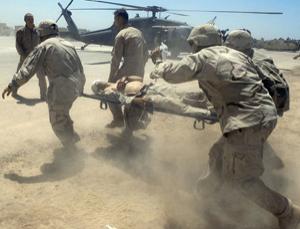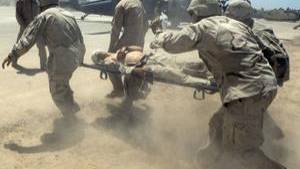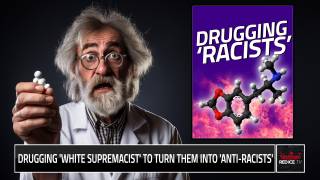Drug could turn soldiers into super-survivors
Source: newscientist.com
 A lucky few seem to be able to laugh in the face of death, surviving massive blood loss and injuries that would kill others. Now a drug has been found that might turn virtually any injured person into a "super-survivor", by preventing certain biological mechanisms from shutting down.
A lucky few seem to be able to laugh in the face of death, surviving massive blood loss and injuries that would kill others. Now a drug has been found that might turn virtually any injured person into a "super-survivor", by preventing certain biological mechanisms from shutting down.The drug has so far only been tested in animals. If it has a similar effect in humans, it could vastly improve survival from horrific injuries, particularly in soldiers, by allowing them to live long enough to make it to a hospital.
Loss of blood is the main problem with many battlefield injuries, and a blood transfusion the best treatment, although replacing lost fluid with saline can help. But both are difficult to transport in sufficient quantities. "You can't carry a blood bank into the battlefield," says Hasan Alam of Massachusetts General Hospital in Boston. "What we're looking for is a pill or a shot that would keep a person alive for long enough to get to them to a hospital."
"We're looking for a pill that would keep a person alive for long enough to get them to hospital"
When the body loses a lot of blood, it tries to compensate by going into shock. This is a set of emergency measures to raise blood pressure and conserve energy, such as increasing heart rate and shutting down expression of some proteins. However, if the body stays in shock for more than a short time, it can lead to organ failure, and death soon follows.
Recent studies have suggested that around 6 or 7 per cent of genes change their expression in response to shock, via the removal of "epigenetic", chemical additions to the genome called acetylations. As histone deacetylase (HDAC) inhibitors can prevent the removal of such acetylations, Alam wondered if these drugs might improve survival after blood loss.
His team previously showed that valproic acid, an HDAC inhibitor already used to treat epilepsy, increased survival rates in rats that had lost a lot of blood. It seemed to be doing this by preventing acetylation, causing certain "survival pathways" to remain switched on.
Now Alam has repeated the study in pigs. He anaesthetised the animals, drained 60 per cent of their blood, and subjected them to other injuries before giving them a saline transfusion. He then injected some of the pigs with valproic acid, gave others a blood transfusion and left the remainder untreated.
Just 25 per cent of the pigs receiving only saline survived for 4 hours - the typical time it takes to get hospital treatment - while 86 per cent of those injected with valproic acid survived. All those that had a blood transfusion lived (Surgery, DOI: 10.1016/j.surg.2009.04.007).
Alam is currently repeating the trial to make sure valproic acid does not hinder survival in the longer term. If so, he will apply for permission to do human trials by the end of the year.
"It's exciting," says John Holcomb of the Center for Translational Injury Research at the University of Texas in Houston. "They're looking at resuscitation in a different way."
Earlier studies by Alam's team showed that rats that naturally survive traumatic blood loss also experience fewer changes in gene expression than those that die or suffer complications. He thinks the same might be true in humans. "Every person has this capacity to survive a huge insult, but most of the time it's dormant," he says. "That's why the same insult kills some people while others laugh and move on. What we're trying to do is make you super-resistant using the pathways and proteins that already exist."
However, Graham Packham of Southampton General Hospital, UK, who is investigating the use of HDAC inhibitors to treat cancer, says it isn't yet clear how valproic acid, which reacts with a wide range of molecules, is actually prolonging survival. "It's not clear whether this is driven by valproic acid's epigenetic activity," he says.
Article from: NewScientist.com






















